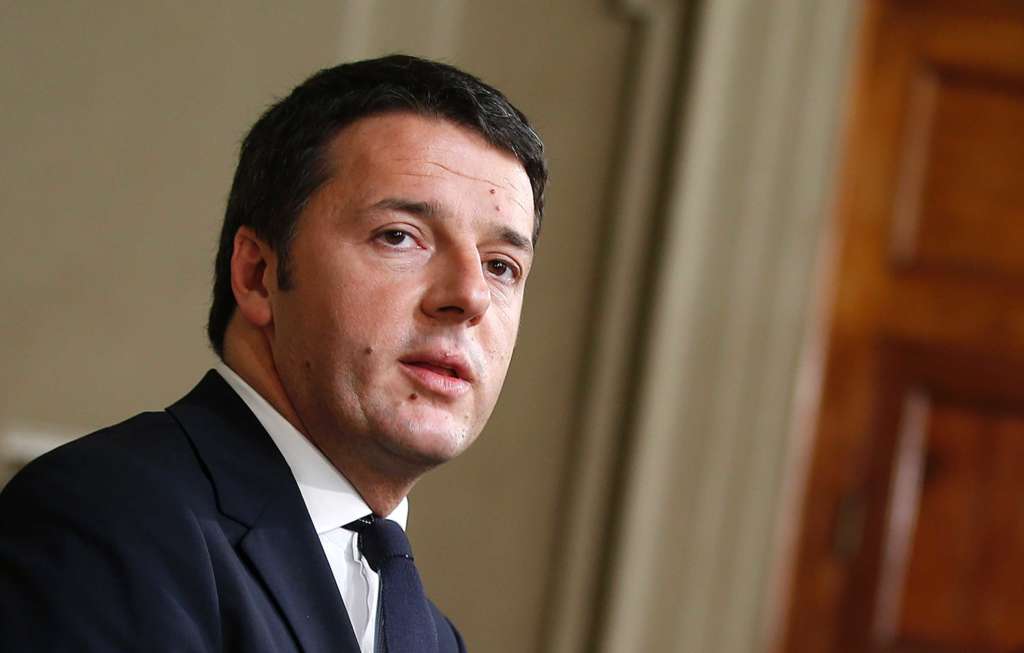Brussels, Rome- Italian Prime Minister Matteo Renzi met with Italy’s President Sergio Mattarella on Monday to offer his resignation, but he was asked to stay until the country’s budget is approved.
Renzi’s offer to resign came after suffering a crushing referendum defeat on Sunday.
Renzi, 41, who was appointed to office in 2014, arranged to meet with President Mattarella hours after close to 60% of voters rejected his plans for constitutional reform.
“When you lose you cannot pretend that nothing has happened then go to bed and sleep. My government ends here today,” Renzi said Sunday.
“I take on full responsibilities for defeat and so I say I lost, not you,” he told supporters.
The result is considered a win for Eurosceptic populist and nationalist parties in Italy which campaigned heavily against Renzi and his promise to stimulate Italy’s sluggish economy.
The ‘No’ campaign was spearheaded by the anti-establishment Five Star Movement party, led by Beppe Grillo, which is expected to make substantial gains if a general election is called.
Formally, the vote was a referendum on whether or not the country should amend its 1948 constitution.
Renzi’s intention was to reduce the power of the upper house of the Italian Parliament, the Senato, by cutting its numbers from 315 to 100 — making it more of a consultative assembly.
For her part, German Chancellor Angela Merkel said on Monday she was saddened by Renzi’s defeat in a referendum on constitutional reform that she supported, adding that the vote was a domestic matter that must be respected.
“I am sad that the referendum in Italy did not turn out as the prime minister wished because I always supported his reform policies but it is of course a domestic Italian decision that we must respect,” Merkel told reporters in the city of Essen where her conservatives are holding a party congress.
French Finance Minister Michel Sapin insisted that the Italian referendum “is a question of internal politics.”
“The referendum was a question on domestic Italian politics… It was not about Europe, on European policy, or on the place of Italy in Europe,” said French Sapin.
“Italy is a solid country, anchored to the European project,” Sapin added.
Member of the European Commission responsible for employment, social affairs, skills and labor mobility Marianne Thyssen said, “Italian people that have spoken and we fully respect their democratic choice.”
“We are confident the Italian political forces and the institutions of the Republic will provide robust political answers.”
As for the adjustment in budget rules, “Yes, indeed, we had some flexible aspects,” she said. “But let me remind you, this was not only for Italy.”
One day after Italian voters decisively rejected a package of Constitutional reforms, effectively dismissing their government, EU officials were far more animated by the results of the Austrian presidential election, in which voters spurned Norbert Hofer of the far-right Freedom Party and instead bet their future on a Green: Alexander Van der Bellen, a liberal lawmaker and former university economics professor.
The 72-year-old statesman and former Green Party politician was winning by 53.3 percent to 46.7 percent with nearly 100 percent of the votes counted.
